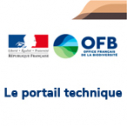COP15 Biodiversity: the OFB welcomes the historic Kunming-Montreal agreement and remains fully committed to its mission to protect biodiversity
This 15th Conference of the Parties (COP15) to the Convention on Biological Diversity, chaired by China, was held in Montreal from 7 to 19 December 2022. It ended with the publication of an ambitious agreement to stop the loss of biodiversity and restore it by setting quantified targets with a monitoring framework. The French Biodiversity Agency (OFB) was present at this historic event.
The OFB has accompanied the French environmental diplomacy, guided by the Minister of Ecological Transition, Christophe Béchu, to share its expertise in biodiversity protection: management of protected areas, data collection, and scientific and mobilization programs. The public agency also organized the second meeting of the International Group of Biodiversity Agencies, an intercontinental network aiming to strengthen links and cooperation projects between States, in the presence of the French Secretary of State for Ecology, Bérangère Couillard.
After more than a week of meetings and negotiations, the Parties reached the adoption of the Kunming-Montreal Agreement on the night of December 18 to 19, 2022.
This agreement has a clear and realistic objective "to halt and reverse the decline of biodiversity", so that biodiversity will be higher in 2030 than in 2020. The collapse of biodiversity is clear: 1 million species are threatened with extinction, 75% of the Earth's surface is significantly altered and 85% of wetlands have disappeared.
Several of the agreement's targets are part of the missions of the OFB.
Managing and restoring protected areas
The agreement calls for 30% restoration of degraded terrestrial and marine ecosystems by 2030 and the protection of 30% of terrestrial areas and 30% of marine areas. In France, the total surface area of protected areas represents 33% of the national territory and of the maritime areas under national jurisdiction. The OFB directly manages or co-manages protected areas, to which it dedicates human, financial and technical resources. The agency also leads the network of protected areas. https://www.ofb.gouv.fr/en/managing-protected-areas
Reduce and improve the use of phytosanitary products by supporting agroecology
In order to reduce by half the use of pesticides and nitrates in agriculture, the OFB relies on the principles of agroecology. This concept puts biodiversity and ecological processes at the heart of agriculture. It aims to reduce environmental impacts (on water, soil, biodiversity, etc) while meeting economic and food needs. The OFB supports this dynamic in connection with the large number of actors involved.
Monitor and reduce invasive species
The OFB believes that the 50% reduction in the introduction of invasive species will be achieved through increased field monitoring. The OFB's mission is to raise awareness, prevent, monitor and assess the negative impacts of these species. In particular, a resource center dedicated to invasive species was created at the end of 2018 to share knowledge and support stakeholders.
Protecting biodiversity from human activities
Stopping the extinction of protected species due to human activities by 2050 will require appropriate land use planning. The OFB has set up many programs to support local authorities in this process, including:
- Municipal Biodiversity Atlas (ABC), which is a spatial inventory of all species and type of environments on the municipal territory. It is a decision-making tool as it involves all stakeholders (elected officials, citizens, associations, companies, etc.) and facilitates the integration of biodiversity issues into the city’s planning and management process. A new call for projects worth 3 million euros will be launched in early 2023.
- Green and Blue Infrastructure (TVB), which is an initiative to maintain and restore ecological continuity in the territories in order to slow down the loss of biodiversity resulting from the artificialization and fragmentation of the environment.
- the implementation of the "Avoid-Reduce-Compensate" sequence, which aims to integrate the environment into planning documents and land development projects. The objective is firstly to avoid all damage to natural environments and associated services, if not to reduce them and, in the last place, to compensate for them. The OFB coordinates actions on this sequence as well as the national resource center.
Involving companies to reduce their impact on biodiversity
The agreement also encourages companies to "monitor, assess and disclose their dependencies and impacts on biodiversity". Led by the OFB, the "Entreprises engagées pour la nature" (Companies commited to nature) program aims to engage companies in favor of biodiversity and thus promote sustainable action plans.
"The OFB is fully mobilized to protect biodiversity and will continue its missions in the field within the framework of this new peace agreement with nature".
Pierre Dubreuil, OFB General Director
To carry out its missions, the OFB relies on multidisciplinary teams (environmental inspectors, engineers, veterinarians, technicians, administrative staff, etc.) of nearly 3,000 agents throughout the country.




